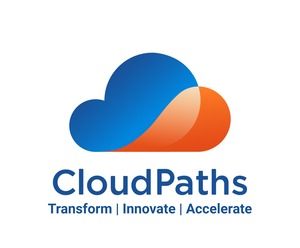SAP Manufacturing
Filter By
Browse By
- SAP Analytics and AI
- SAP Application Development and Integration
- All SAP Application Development and Integration
- SAP ABAP
- SAP ABAP Development Tools
- SAP ABAP Test Cockpit
- SAP API Management
- SAP BAPI
- SAP Basis
- SAP BRF
- SAP Business Application Studio
- SAP CMS
- SAP Design Studio
- SAP Development Tools
- SAP DevOps
- SAP EAI
- SAP EDI
- SAP Extension Suite
- SAP Fiori
- SAP Fiori Elements
- SAP Integration Suite
- SAP Low Code Application Development
- SAP Low Code Automation
- SAP Netweaver
- SAP Release Management
- SAP UI5
- SAP Web Application Server
- SAP Web IDE
- SAP Business Process Management
- SAP Center of Excellence
- SAP CIO
- SAP Customer Experience
- SAP Data and Data Management
- All SAP Data and Data Management
- SAP BW
- SAP BW/4HANA
- SAP Crystal Reports
- SAP Data Archiving
- SAP Data Center
- SAP Data Governance
- SAP Data Integration
- SAP Data Migration
- SAP Data Quality
- SAP Data Services
- SAP Data Strategy
- SAP Data Visualization
- SAP Data Warehouse Cloud
- SAP DMS
- SAP Document Control
- SAP EIM
- SAP ETL
- SAP ETL Tools
- SAP HANA
- SAP HANA Administration
- SAP HANA Deployment Infrastructure
- SAP HANA Studio
- SAP Master Data
- SAP Master Data Governance
- SAP MDM
- SAP Enterprise Architect
- SAP Enterprise Asset Management
- SAP ERP
- SAP Finance
- All SAP Finance
- SAP Accounting
- SAP AR AP
- SAP Asset Accounting
- SAP Billing Systems
- SAP BPC
- SAP BRIM
- SAP Cash Management
- SAP Central Finance
- SAP Controlling
- SAP COPA
- SAP Cost Center Accounting
- SAP Currency Risk
- SAP e-invoicing
- SAP FICO
- SAP Finance Automation
- SAP Advanced Financial Closing
- SAP Financial Consolidation
- SAP Financial Planning
- SAP FX Risk
- SAP General Ledger
- SAP Global Tax Management
- SAP Hyperion
- SAP Order to Cash
- SAP Payment Processing
- SAP Profitability Analysis
- SAP Rebate Management
- SAP S/4HANA Finance
- SAP SWIFT Compliance
- SAP Treasury Management
- SAP Universal Journal
- SAP Governance Risk and Compliance
- SAP Human Capital Management
- SAP Intelligent Technologies
- SAP Platform and Technology
- All SAP Platform and Technology
- SAP Business Technology Platform
- SAP Cloud
- SAP Cloud Connector
- SAP Cloud Integration Platform
- SAP Cloud Migration
- SAP Cloud Platform
- SAP Cloud Providers
- SAP Cloud Strategy
- SAP Digital Signature
- SAP Container Platform
- SAP HANA Enterprise Cloud
- SAP Digital Asset Management
- SAP Smart Forms
- SAP HEC
- SAP Digital Integration Hub
- SAP Hyperscalers
- SAP Infrastructure
- SAP Messaging
- SAP Quality and Testing
- SAP Security
- SAP Spend Management
- SAP Supply Chain Management
- All SAP Supply Chain Management
- SAP APO
- SAP Asset Management
- SAP Business Network
- SAP Digital Manufacturing Cloud
- SAP Digital Twin
- SAP EWM
- SAP IBP
- SAP Inventory Management
- SAP Label Printing
- SAP Logistics
- SAP Manufacturing
- SAP Manufacturing Automation
- SAP MES
- SAP MII
- SAP MM
- SAP MRO
- SAP MRP
- SAP Order Management
- SAP Plant Maintenance
- SAP PLM
- SAP Production Planning
- SAP S&OP
- SAP SD
- SAP SPM
- SAP Supply Chain Planning
- SAP Track and Trace
- SAP Transportation Management
- SAP System Administration
Manufacturing Defined
Manufacturing refers to the creation of finished goods with the help of equipment, labor, machines, tools, parts, and raw materials. It includes variable factors like supplies, equipment, overhead, parts, and skilled workers. Production planning and scheduling contain comprehensive planning features and integrated scheduling to create efficiencies and lower costs. Modern manufacturing solutions include on-premise deployment, collaboration enterprise-wide, seamless digital capabilities, and real-time analytics for problem-solving and robust decision-making.
SAP Manufacturing
Key Capabilities of SAP S/4HANA Manufacturing for planning and scheduling include:
- Comprehensive end-to-end planning: Planning production resources beyond material requirements planning (MRP) functionality, considering capacity and material availability constraints in the planning model, and integrating manufacturing master data.
- Integrated scheduling: Streamline scheduling through global production environments, use industry scheduling for block, campaign, shelf-life and model mix planning, and perform detailed scheduling.
Manufacturing Defined
Manufacturing refers to the creation of finished goods with the help of equipment, labor, machines, tools, parts, and raw materials. It includes variable factors like supplies, equipment, overhead, parts, and skilled workers. Production planning and scheduling contain comprehensive planning features and integrated scheduling to create efficiencies and lower costs. Modern manufacturing solutions include on-premise deployment, collaboration enterprise-wide, seamless digital capabilities, and real-time analytics for problem-solving and robust decision-making.
SAP Manufacturing
Key Capabilities of SAP S/4HANA Manufacturing for planning and scheduling include:
- Comprehensive end-to-end planning: Planning production resources beyond material requirements planning (MRP) functionality, considering capacity and material availability constraints in the planning model, and integrating manufacturing master data.
- Integrated scheduling: Streamline scheduling through global production environments, use industry scheduling for block, campaign, shelf-life and model mix planning, and perform detailed scheduling.
Key Capabilities of SAP S/4HANA Manufacturing for production engineering and operations include:
- Streamlined engineering: Digital collaboration with master data, design handovers, process planning, and change management. Simplify build package creation, management, and delivery for global environments.
- Enhanced operations management: Analyze change impact and change implementation. System-optimized monitoring of shop floor operations with issue detection, root cause analysis, and decision support.
The importance of manufacturing is that it leads to research and development, innovation, productivity, exports, and jobs. It helps to raise living standards and generates more economic activity than any other business sector.
3 benefits are:
- Simplify functionality: Digital enterprise collaboration to simplify product planning, change management, and operations. Decrease days in inventory by integrating scheduling and execution for a full view of product data.
- Optimize adaptability: Minimize production disruptions in shop floor execution. Reduce cycle time by adapting production schedules to plant conditions.
- Enhance planning capabilities: Streamline build package creation, planning, and shop floor operations. Reduce revenue loss from stock outs by improving flexibility into production planning scenarios.
Vendor partners to modernize your manufacturing and increase efficiency include: Forcam, SAP, and Movilitas.
Key Considerations for SAPinsiders are:
- Expert Panel Discussion: Boost Manufacturing Agility and Flexibility with SAP HANA. Listen to leaders engage about the state of manufacturing agility and flexibility by using SAP HANA.
- Belmo Increases Warehouse Productivity and Order Fulfillment by 30%. Read the case study on how the use of technology, like machine learning, can have significant benefits.
- Industry 4.0: The Journey to the Future of Productivity. Read about the importance of digital technologies, but also understand automation and collaboration are the path to success.
498 results
-

Live from SAPinsider Studio: Richard Howells on Harnessing the Internet of Things
Richard Howells, Global Vice President of Extended Supply Chain at SAP, joins SAPinsider Studio at the SAPinsider SCM-CRM 2016 event to discuss how the Internet of Things can help organizations re-imagine their supply chains. This is an edited transcript of the discussion: Natalie Miller, SAPinsider: Hi, I’m Natalie Miller with SAPinsider, and I’m here at...…
-

Meet Demand-Driven Scheduling Requirements with SAP ERP and SAP APO: Q&A on When to Use Which for Enhanced Supply and Production Planning
Reading time: 31 mins
SAP ERP and the production planning and detailed scheduling (PP/DS) and supply network planning (SNP) components of SAP Advanced Planning and Optimization (SAP APO) offer functionality that can be utilized in a variety of design options to optimize production plans and provide greater visibility into your inventory management, but when do you use which? Especially...…
-

How SAP S/4HANA Enables Digital Transformation in Supply Chain and Manufacturing
Reading time: 6 mins
The digital transformation is revolutionizing every line of business, and with more products and services available than ever before, the supply chain is a key front for these revolutionary changes. Consumers want their products customized and delivered quickly, which in turn requires supply chains to be agile, fast and flexible. And these capabilities, in turn,…
-
-

5 Ways Cloud MES Improves Your Production Capabilities: Leading Technology for Sustainable Manufacturing
Reading time: 2 mins
Cloud computing has transformed IT resource deployment, offering scalable, cost-effective solutions. Despite initial reluctance, manufacturers are now considering cloud-based Manufacturing Execution Systems (MES) due to hybrid work trends and sustainability goals. Cloud MES provides significant advantages such as improved accessibility, adaptability, connectivity, and integration across supply chains. It addresses common manufacturing challenges like inefficient data…
-

 Premium
Premium
Create Fail-Safe Composite Applications by Implementing Foolproof Error-Handling Mechanisms in SAP MII
Reading time: 32 mins
Discover how to handle various error scenarios while developing composite applications in SAP Manufacturing Integration and Intelligence (SAP MII). Learn the new exception handling and transaction handling techniques in SAP MII. Key Concept Exception handling and SQL transaction support are two techniques that are part of the newer versions of SAP Manufacturing Integration and Intelligence...…
-

Expert Panel Discussion: Boost Manufacturing Agility and Flexibility with SAP HANA
July 01, 2021
Digital transformation is a goal that many manufacturers have been working toward as a means of optimizing operations and improving manufacturing productivity. But the last year has increased the urgency of this initiative as it has become clear to manufacturers that digital transformation can help maintain business continuity and increase agility when introducing new products,…
-

Augmenting SAP with a Specialized MES to Unlock Manufacturing Excellence
Reading time: 3 mins
CarlisleIT, facing operational challenges in its manufacturing plants, successfully implemented CAI Software’s ShopVue MES to enhance real-time data visibility, boost productivity, and achieve over $3 million in annual labor cost savings, illustrating the crucial role of specialized MES systems in maximizing the value of SAP ERP investments.
-
-

 Premium
Premium
Reduce Costs with Better Handling of Scrap Master Data Elements
Reading time: 18 mins
SAP ERP Central Component 6.0 offers several scrap master data elements. Understand the purpose of these master data elements, how the various scrap fields work together, and when and how to use master data elements to get the desired business results. Key Concept Scrap means different things to different people. The most common business meaning...…
-

 Premium
Premium
Effectively Create a Standard Cost Estimate Across Plants
Reading time: 17 mins
ManagementA complex manufacturing scenario may require operations to be carried out in different plants that manufacture a given good at various stages. Weigh the pros and cons of SAP’s four methods for creating a standard cost estimate for a semi-finished good in the receiving plant in a multiple-plant scenario. Key Concept A standard cost estimate...…
-

Live from SAPinsider Studio: Hans Thalbauer on Supply Chain Digitization
Hans Thalbauer, Senior Vice President, Extended Supply Chain, SAP, joins SAPinsider Studio at the SAPinsider SCM 2016 event to discuss the four pillars of the supply chain digital framework: customer-centricity, individualization of products, collaboration, and resource scarcity. This is an edited transcript of the discussion: Natalie Miller, SAPinsider: Hi, I’m Natalie Miller with SAPinsider, and...…
Become a Member
Unlimited access to thousands of resources for SAP-specific expertise that can only be found here.
Become a Partner
Access exclusive SAP insights, expert marketing strategies, and high-value services including research reports, webinars, and buyers' guides, all designed to boost your campaign ROI by up to 50% within the SAP ecosystem.
Upcoming Events
Related Vendors
Your request has been successfully sent


